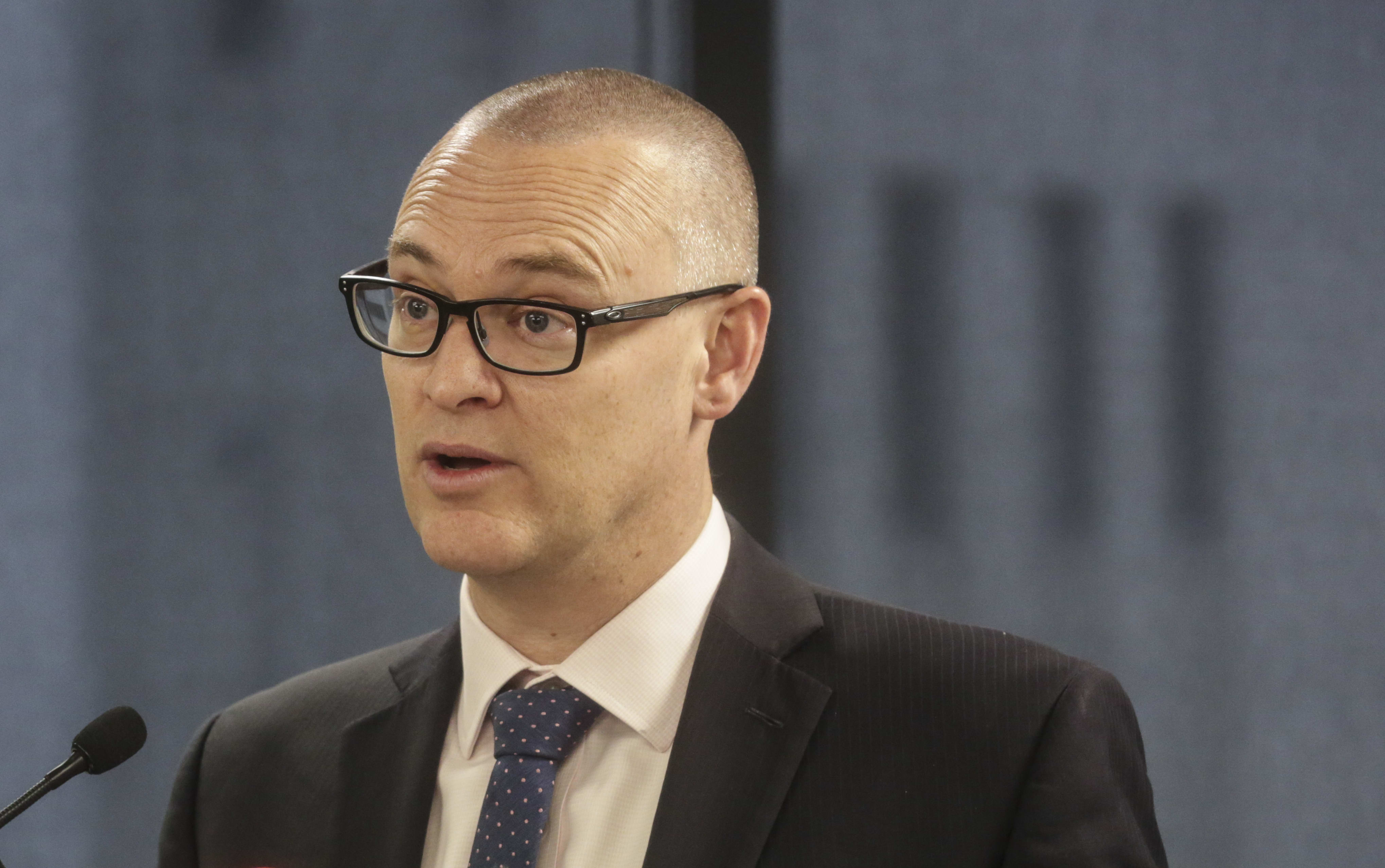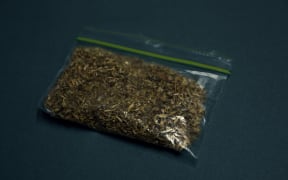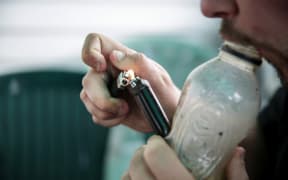Two of the most commonly used synthetic drugs could be reclassified as Class A, bringing them in line with heroin and cocaine.

Health Minister David Clark. Photo: RNZ / Richard Tindiller
Health Minister David Clark said the aim was to give the police greater powers to stop makers and sellers of the drug.
He said he would be asking his Cabinet colleagues to support reclassification of two compounds known as AMB-Fubinaca and 5F-ABD.
A bad batch of synthetic drugs in Christchurch is suspected to be behind one death. The batch has also put 19 people in hospital over the last two weeks.
"Any death as a result of drug use is a tragedy, and my sympathies go to friends and family," Dr Clark said.
The government was taking the synthetic drug problem seriously and was talking to service providers and drug users to identify areas of need, he said.
"I am seeking the support of my cabinet colleagues to reclassify some of these substances as Class A drugs, alongside heroin and cocaine," he said.
"That will give the police greater powers to go after the peddlers of these drugs and interrupt the supply of them into the community."
A decision on reclassification under the Misuse of Drugs Act would be made in coming weeks.
"It's important to acknowledge that reclassification is not a silver bullet. We need to treat drug abuse, including synthetic cannabis, as a health issue," Dr Clark said.
New laws could penalise addicts
Drug laws need a complete overhaul, not just a tweak, says The Drug Foundation.
It said drug suppliers and users needed to be treated differently under the law, as suggested by the Law Commission in 2011.
This would stop addicts being penalised for what should be health issue, Drug Foundation chief executive Ross Bell said.
"Unless the government reforms that law then its good intentions of going after the big guys doesn't stop police from then also choosing to criminalise people who are using these drugs."
Funding for drug addiction services also needed to double, he said.
Drug rehabilitation service provider What Ever It Takes Trust general manager Caroline Lampp said a reclassification of two synthetic drugs would help stop supply, but more help for addicts was crucial.
"There a big gap here in Hawke's Bay and in other places around the before and after support," she said.
Dr Clark agreed addiction services are underfunded, but said the government was waiting for the final report from the Mental Health and Addiction Inquiry before increasing any funding.
Meanwhile, Green Party law reform spokesperson Chloe Swarbrick said the Health Minister's push was "destined to fail".
"People who make synthetics are constantly changing the compounds and chemicals - it's impossible to know what's in these drugs. So if our plan is to classify every synthetic product then we'll be playing catch up every time manufacturers change the chemicals.
"David Clark's call to re-classify two of the synthetic compounds as Class A drugs puts our country on the wrong path. This a critical moment for drug policy direction. We can choose to carry on with a failed war on drugs, or take a more sensible route and look at the causes and health impacts of addiction and treat those instead."
National Party leader Simon Bridges supported Dr Clark's idea but said it needed to go further.
"Take more advice and be wider on this Class A issue so that the bad guys can't just change their recipes," he said.
Dr Clark said it was "impossible to keep on top of every illegal drug" but the reclassification to the two worst synthetics was a start.
"We are doing the things we logically do because this is a situation of dire concern."




